
a. Introduction
b. Featured International Health Projects – LIHP Cohorts 2015 and 2016
c. Edmundo Granda Ugalde Leaders in International Health Program 2017
d. Applying the 2030 Agenda for Sustainable Development to National and Subregional Contexts
e. Publication of the Outcome Evaluation of the LIHP 2008 – 2012
f. The Experiences of Health Leaders in Paraguay
g. Past Events
h. Upcoming Events
i. Call for papers
 |
|
| a. Introduction |
up  |
The International Health Bulletin is a publication developed by the Edmundo Granda Ugalde Leaders in International Health Program (LIHP) of the Pan American Health Organization/World Health Organization (PAHO/WHO). The purpose of the Bulletin is to contribute to the dissemination of information on international health issues among program participants and other relevant actors who work in the areas of public health and international relations, enabling them to learn more about the LIHP, as well as relevant issues and opportunities related to international health.
This issue of the bulletin discusses LIHP activities designed to support critical analysis and reflection on the Sustainable Development Goals (SDGs). The bulletin will also feature final international health projects carried out by the program’s 2015 and 2016 cohorts, as well as the publication of an outcome evaluation of the LIHP and its presentation at a large global health conference. Lastly, this issue will cover notable past and future international health events and initiatives addressing sustainable development and health through a variety of perspectives and approaches.
 |
|
| b. Featured International Health Projects - LIHP Cohorts 2015 and 2016 |
up  |
Each LIHP participant completes an international health project, addressing a public health issue or situation in their country, sub-region or region and analyzing it from an international health perspective. Below are some featured projects from the 2015 and 2016 cohorts.
Year 2015
UNASUR and Cancer Control
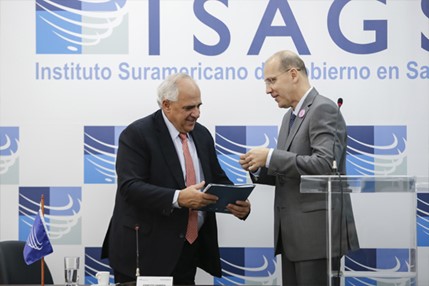 Walter Zoss, LIHP participant from Brazil, evaluated the viability of UNASUR’s Network of National Cancer Institutes and Institutions (RINC, according to its acronym in Spanish) as a path to achieving cancer control in the region. The study analyzed RINC since its inception in 2011; Zoss conducted interviews with RINC directors, discovering insights related to RINC’s structure, ability to represent the interests of diverse nations, and the role of RINC in strengthening regional cancer control efforts. After assessing RINC’s capacity to lead cancer control, Zoss concluded that RINC offers a promising form of south-south cooperation to address the burden of cancer in the region.
Walter Zoss, LIHP participant from Brazil, evaluated the viability of UNASUR’s Network of National Cancer Institutes and Institutions (RINC, according to its acronym in Spanish) as a path to achieving cancer control in the region. The study analyzed RINC since its inception in 2011; Zoss conducted interviews with RINC directors, discovering insights related to RINC’s structure, ability to represent the interests of diverse nations, and the role of RINC in strengthening regional cancer control efforts. After assessing RINC’s capacity to lead cancer control, Zoss concluded that RINC offers a promising form of south-south cooperation to address the burden of cancer in the region.
| Integration Policies and Health Services on the Triple Border of Argentina, Brazil and Paraguay | |
 Two LIHP participants from Paraguay, Patricia A. Giménez León and Diana Rodríguez, evaluated policy integration processes targeting health services in Paraguay, Argentina, and Brazil. Their analysis identified the effect of regional integration policies on factors facilitating and limiting cross-border health services. Through their findings, the authors highlight the importance of regulating the use of such services and identify health implications in areas such as maternal and child health. The ultimate objective of the study was to improve access and quality of health care for the Paraguayan population.
Two LIHP participants from Paraguay, Patricia A. Giménez León and Diana Rodríguez, evaluated policy integration processes targeting health services in Paraguay, Argentina, and Brazil. Their analysis identified the effect of regional integration policies on factors facilitating and limiting cross-border health services. Through their findings, the authors highlight the importance of regulating the use of such services and identify health implications in areas such as maternal and child health. The ultimate objective of the study was to improve access and quality of health care for the Paraguayan population.
| Access to Medicines in Central America and the Dominican Republic |
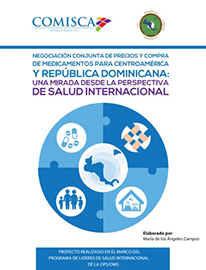 María de los Angeles Campos de Murillo, an LIHP participant from El Salvador, carried out an in-depth analysis of the COMISCA Joint Negotiation for the Purchase of Medicines, an initiative of the Council of Ministers of Health of Central America and the Dominican Republic (COMISCA) to improve equitable public access to medicines in the region. Through interviews with key actors, the study explored the factors facilitating such negotiations and assessed the money saved on purchase of medicines through this method of cost containment. Among other conclusions, the author identified the need for strong political support for the implementation of innovative strategies that promote access to medicines and the utilization of integration processes to address the issue.
María de los Angeles Campos de Murillo, an LIHP participant from El Salvador, carried out an in-depth analysis of the COMISCA Joint Negotiation for the Purchase of Medicines, an initiative of the Council of Ministers of Health of Central America and the Dominican Republic (COMISCA) to improve equitable public access to medicines in the region. Through interviews with key actors, the study explored the factors facilitating such negotiations and assessed the money saved on purchase of medicines through this method of cost containment. Among other conclusions, the author identified the need for strong political support for the implementation of innovative strategies that promote access to medicines and the utilization of integration processes to address the issue.
| Year 2016 |
Refocusing the role of Allied Health Professionals (AHPs) to address Chronic Noncommunicable Diseases (CNCDs) in Trinidad and Tobago
Lauren K. Maharaj, an LIHP participant from Trinidad and Tobago, analyzed the role of allied health professionals (AHP) in the treatment and control of CNCDs in the Northwest region of the country. Through regional assessment of the availability of human resources for health, projected burden of CNCDs, and lessons learned from countries undergoing similar processes, the study derived recommendations for a refocused role for AHPs in order to better address CNCDs.
The Right to Health among the Irregular Immigrant Population in Transit through Costa Rica, Lessons Learned from 2015-2016
Two LIHP participants from Costa Rica, Karen Vargas López and Vigny Alvarado Barboza, addressed the health needs of the irregular immigrant population in transit through the country. Their study characterized the current situation of massive migratory flows, analyzed relevant national and international laws, identified lessons learned from findings, and proposed strategic lines of action to address the health of irregular immigrants in transit through Costa Rica with recommendations for the short, medium, and long term.
The Public Health Decision Agenda and Congenital Syphilis in Argentina
Given the rising rates of congenital syphilis in Argentina, María Belén Herrero and Gerardo Daniel Deluca analyzed the role of the international determinants of health in influencing the ability of a public health issue, in this case congenital syphilis, to advance from the formal national agenda to the decision agenda. They found that, even though the formal agenda recognizes congenital syphilis as a public health priority, sustainable governmental strategies guaranteeing its control and elimination are lacking due in part to various determinants related to foreign policy, trade, science and technological innovation and production. According to the authors, the study indicates the need to strengthen policies and mechanisms in these areas to incorporate congenital syphilis into Argentina’s decision agenda.
 |
|
| c. Edmundo Granda Ugalde Leaders in International Health Program 2017 |
up |
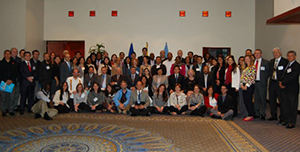 The LIHP, which celebrated its 30th anniversary in 2015, has contributed to the development of over 560 professionals from 41 countries, representing leaders and innovators within ministries, universities, international organizations, sub-regional integration organisms, non-governmental organizations, among others. Participants carry out interactive online activities while remaining at their places of employment throughout the program.
The LIHP, which celebrated its 30th anniversary in 2015, has contributed to the development of over 560 professionals from 41 countries, representing leaders and innovators within ministries, universities, international organizations, sub-regional integration organisms, non-governmental organizations, among others. Participants carry out interactive online activities while remaining at their places of employment throughout the program.
The 2017 LIHP was launched on 8 May, 2017. The cohort, consisting of 44 representatives from 27 countries, convened for a week-long meeting in Quito, Ecuador from 12-16 June. During the meeting, participants discussed the impact of international determinants on the attainment of the Sustainable Development Goals and further developed their international health project proposals designed to address priority international health issues within their national, sub-regional or regional contexts. Proposal presentations centered on topics of international cooperation, noncommunicable diseases, food safety, health policy, human resources for health, and health systems and services.
Several prominent actors in health also participated, encouraging attendees to promote international health within their distinct professional circles. Special guests included Ms. Verónica Espinosa, Ecuador’s Minister of Public Health; Dr. Gina Tambini, the PAHO/WHO Representative in Ecuador; Dr. Fernando Sempértegui, Dean of the Central University of Ecuador; and Mr. Carlos Rodríguez, Ecuador’s Minister of Foreign Service and LIHP alumnus. Ms. Verónica Espinosa thanked PAHO for its leadership, especially as regards training of human resources for health, and emphasized the importance of shifting the paradigm of health from simply combatting disease to holistically addressing wellbeing and equity for all. Dr. Gina Tambini described the contributions LIHP participants have made to the health situation in Ecuador. After the week-long meeting, LIHP participants returned to their respective workplaces to carry out the remaining virtual modules of the program.
 |
|
| d. Applying the 2030 Agenda for Sustainable Development to National and Subregional Contexts |
up |
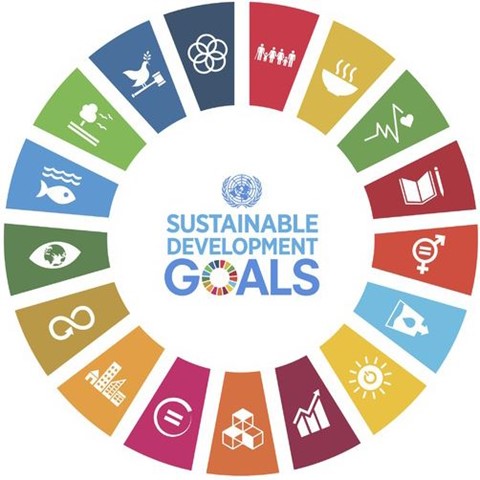 Officially titled “Transforming our World: the 2030 Agenda for Sustainable Development”, the Sustainable Development Goal (SDG) agenda published by the United Nations in 2015 altered the way that actors in all Member States must govern and participate in national development. The plan calls international actors from a variety of sectors to work towards total poverty eradication, elimination of hunger, protection of the planet, and peace and prosperity for all through the attainment of 17 goals and 169 objectives by 2030. The LIHP has incorporated this plan into its learning activities, discussions, and module content in areas such as diplomacy, conflict analysis and resolution, climate change, infectious and noncommunicable disease, and human security.
Officially titled “Transforming our World: the 2030 Agenda for Sustainable Development”, the Sustainable Development Goal (SDG) agenda published by the United Nations in 2015 altered the way that actors in all Member States must govern and participate in national development. The plan calls international actors from a variety of sectors to work towards total poverty eradication, elimination of hunger, protection of the planet, and peace and prosperity for all through the attainment of 17 goals and 169 objectives by 2030. The LIHP has incorporated this plan into its learning activities, discussions, and module content in areas such as diplomacy, conflict analysis and resolution, climate change, infectious and noncommunicable disease, and human security.
Of particular relevance is the SDG activity carried out by the 2017 LIHP cohort, in which participants analyzed the agenda in relation to the international determinants of health. Working in small, inter-country groups, participants were asked to analyze the SDGs according to categories deemed areas of critical importance by the agenda’s preamble (people, planet, prosperity, peace and partnership). In particular, groups were asked to:
- Examine and analyze the assigned SDG goals with their respective targets.
- Explore the direct role of United Nations (UN) agencies in achieving the assigned goals.
- Analyze the influences (positive or negative) of the international determinants of health of the LIHP International Health Conceptual Model (IHCM) on the achievement of the goals.
- Explain the most relevant differences between the countries represented in their group.
The participants presented their findings during the Quito meeting. After identifying and describing the goals and the relevant UN agencies involved in their attainment, each group analyzed the potential influence of the international determinants (foreign policy, models of development, trade, and science and technology) and predicted the positive or negative effects each of these influences could have on sustainable development within their assigned area. Analyses were applied within and between countries, and current issues such as immigration, international law, natural resource shortages, and economic events were discussed at length.
The exercise enhanced a working understanding of the complexity of the SDG agenda among participants. Discussions led to an open conversation about potential points of friction that could result from the agenda’s implementation, as well as perspectives regarding regional capacity to implement it. The identification of challenges facing the agenda led to a platform for ongoing dialogue and idea-sharing among participants.
 |
|
| e. Publication of the Outcome Evaluation of the LIHP 2008 - 2012 |
up |
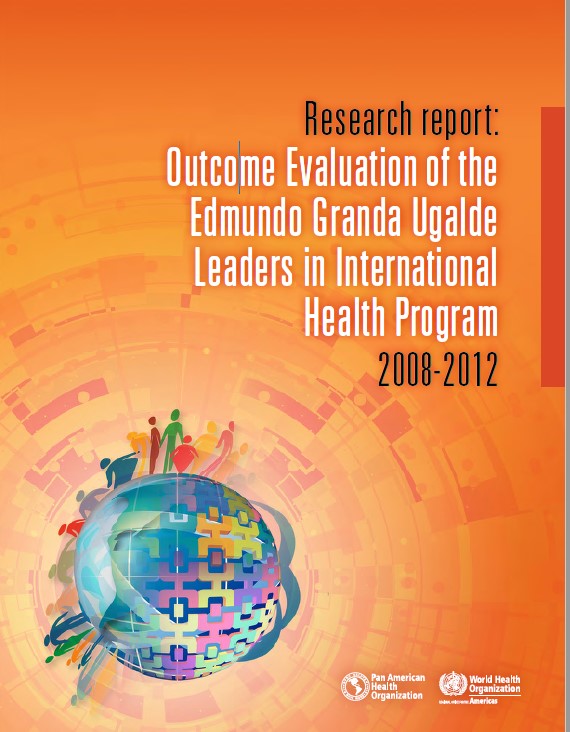 The LIHP published its Outcome Evaluation of the Edmundo Granda Ugalde Leaders in International Health Program 2008–2012 in September 2017. The study assessed the results of the LIHP in terms of the professional competencies developed in the short and medium term by graduates from the 2008 to 2012 cohorts. In addition, recommendations were made to improve the quality and relevance of the LIHP and, thereby, strengthen international health capacity in the Region.
The LIHP published its Outcome Evaluation of the Edmundo Granda Ugalde Leaders in International Health Program 2008–2012 in September 2017. The study assessed the results of the LIHP in terms of the professional competencies developed in the short and medium term by graduates from the 2008 to 2012 cohorts. In addition, recommendations were made to improve the quality and relevance of the LIHP and, thereby, strengthen international health capacity in the Region.
Conducting online anonymous surveys and group interviews to collect quantitative and qualitative data, the evaluation assessed conceptual knowledge gained among participants as well as their ability to apply the skills and competencies developed during the program in their professional circles. Findings confirmed that graduates are able to apply what they learned from the program in their professional contexts. Respondents indicated active involvement in the international arena and noted that the LIHP helped them contribute to global and regional mandates through increased knowledge, provision of useful tools and facilitation of relationships. The evaluation also identified strategic recommendations for the program to maximize its reach and success among future cohorts.
Results of the evaluation have been disseminated through various avenues. In April 2017, findings were presented at the eighth annual conference of the Consortium of Universities for Global Health through a poster presentation by Ms. Lizbeth Alvarez, one of the study’s co-authors and a former PAHO intern. The poster abstract was published in the Annals of Global Health (page 21).
Copies of the publication were distributed during the 29th Pan American Sanitary Conference. It is also available through the PAHO/WHO Institutional Repository for Information Sharing and the Regional Observatory of Human Resources in Health of the Organization.
 |
|
| f. The Experiences of Health Leaders in Paraguay |
up |
The experience of various previous participants in the LIHP, including their perspectives on the program and reflections on its utility in international health, are recorded in a short video produced by the PAHO/WHO Country Office in Paraguay. A link to the video is available here.
 |
|
| g. Past Events |
up |
Fourth Latin American and Caribbean Congress of Global Health
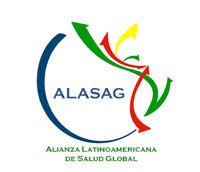
The Fourth Latin American and Caribbean Congress of Global Health, sponsored by the Latin American Alliance of Global Health (ALASAG, according to its acronym in Spanish) and organized by ISALUD University, convened from 23-25 November, 2016 in Buenos Aires, Argentina. The event addressed its theme of “Technologies, Global Risks, and Health Governance: Challenges and Responses from Latin America” by convening professionals and scientists from Latin America and other countries to exchange relevant ideas.
Presentations from the conference can be found here.
 |
|
| h. Upcoming Events |
up |
Cuba Salud 2018
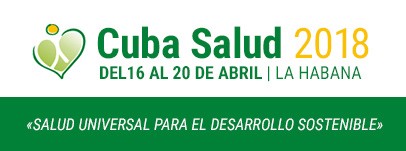
Cuba Salud, an annual conference sponsored by a variety of national and international organizations, will take place from 23-27 April 2018 in Havana, Cuba. The conference’s theme is “Universal Health for Sustainable Development”, and it will feature discussion, debate, scientific exchange, and reflection on the international health agenda. The fourth encounter on international health and cooperation will take place during the main conference. Two satellite events will also be held. More information on the event’s logistics, themes, and requirements for submitting an abstract can be found on the Cuba Salud website.
Global Health & Innovation Conference (GHIC)
The Global Health & Innovation Conference, carried out by the global health delivery nonprofit, Unite For Sight, is the world’s largest global health conference, known for prioritizing intersectoral collaboration in the promotion of global health, with strong emphasis on social entrepreneurship.
The conference will take place from 14-18 April 2018 at Yale University. Innovation cash prizes of $10,000 and $5,000 will also be awarded to the two best social impact pitches presented at the conference.
Canadian Conference on Global Health
The Canadian Conference on Global Health is an annual event attracting professionals from more than 30 countries. This year its theme is “Leaving No One Behind? Reflection for Action in a Changing World”. The conference will focus on issues impacting health equity, and will also explicitly address the Sustainable Development Goals through a formal reflection of global progress throughout the agenda’s first 1,000 days.
Fifth Global Symposium on Health Systems Research
The Fifth Global Symposium on Health Systems Research will take place from 8-12 October 2018 in Liverpool, England with the theme ‘Advancing health systems for all in the SDG era’. For more information or to submit an abstract visit http://healthsystemsresearch.org/hsr2018/.
Information on the Fourth Global Symposium held in 2016 in Vancouver, Canada, including video recordings of all plenary sessions, can be found here.
 |
|
| i. Call for papers |
up |
Pan American Journal of Public Health – Call for Papers on Primary Health Care
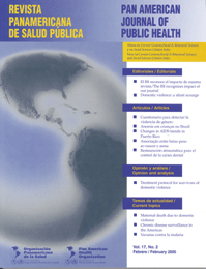
The Pan American Journal of Public Health is calling for papers to be published in a special issue titled “Primary Health Care in the Americas: 40 Years after Alma-Ata”. The issue will be published in 2018, marking forty years since the declaration of Alma-Ata. The declaration played a key role in advancing universal health by articulating primary health care as a guiding principle of a comprehensive health system. Although the Americas Region has seen substantial improvement in health systems since its enactment, many challenges remain.
To reflect on progress made over the past four decades as well as address barriers that continue to plague many health systems, the Pan American Journal of Public Health is calling for papers related to four key areas: (1) strategies and programs to reduce inequities in health and health care; (2) increasing response capacity of first level of care; (3) leadership and governance; and (4) organizing the community to promote universal access to health and universal health coverage.
Articles will be accepted in Portuguese, Spanish, and English, and can include research papers, systematic reviews, opinions and analysis, special reports, and brief communications. The deadline for submissions is 29 December 2017. Further details for authors are available here.
